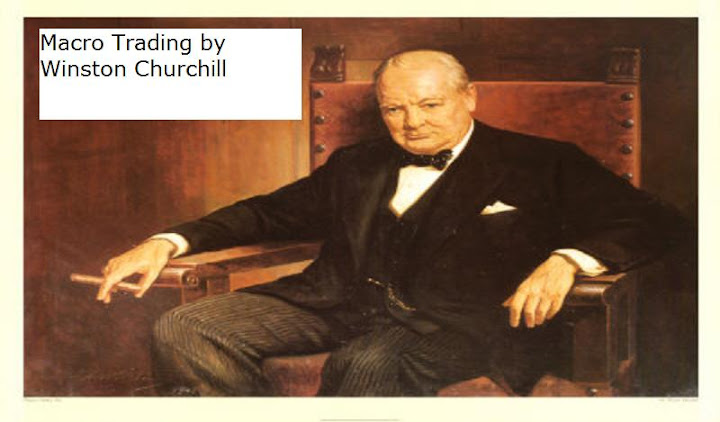I was preparing a week-end macro note when Reuters had breaking news:
Italy PM Monti will resign as soon as budget passed - statement
The Mastermind of Club Med Mario Monti have resigned as he has lost the backing of Berlusconi's People of Freedom Party. You can't blame a 69 year old bureacrat for not wanting to sit this one out, but Monti will be major loss for the pretend-and-extend crowd in Club Med.
Club Med managed in 2012 to get considerbale concessions from Germany and the EU Commission and no one has been more instrumental than Monti, who by Brussels insiders is seen as the 'puppet master' of Rahoy, Hollande and Draghi. His influence can not be overestimated, but make no mistakes Monti is the definition of extend-and-pretend.
When asked recently asked for two things which could help Europe back to normalisation he answered: Stabile government and Euro bonds. Ironic he now is the very reason that politics again will in focus and that Euro bonds have never been further away with Berlusconi and Nothern League certain to call for reintroduction of the Lira, Italy is again in the headlines for the wrong reasons.
The social tension in Italy but also in Spain and Portugal is about to explode. The desperate youth will look for more Radical politicians to carry their message, this has always been the case when we have recession and frustations - unfortunately.
The Sunday opening in Sydney should see EUR/USD under pressure - but more important will be the reaction of the fixed income market, where ECB should could be activated on the OTM and not by Spain but by Italy. Rumors floated late Friday that Italy would ask, back then it made no big sense, but with this week-end change it could be the reality before 2012 runs out.
This is commment from our Milano office CEO Gian Franco Bazzani: "About Berlusconi, the Corriere della Sera wrote that this is the beginning of the election campaign and also the end of Berlusconi as leader of the moderate area.
The next election, probably on 10/11 March, will formalize the end of Berlusconism. The risk is that nobody will have enough votes to drive the Parliament in 2013. Also the Democratic Party (a blend of very different forces) that probably will be the first party in Italy, will have to negotiate with small political forces to have the majority. Confusion and economic weakness is a very bad cocktail"
___________________________________________________________________________
This is the note I was writing called: Europe turns a negative corner.
This week has been a strange week - the complacency of the market is for everyone to see but underneath the Santa Claus mood quit a few things have changed negative and now even the political climate is again heating up as Berlusconi throws himself into the Italian election race: Old gambler Berlusconi back for last throw (Reuters) - A come-back the market did not appreciate. It should be noted his party: People of Freemdom only polls at 15 percent, but Berlusconi is going to anti-EU and Monti to gain which will leave Europe and particular ECB shaking it head.
Italian 10 Y BTP's - December Future
Souce: Bloomberg LLP
Meanwhile in Spain where unlike Italy they still run decisive primary deficits the IBEX - Spanish stock market is showing big divergence with the broader Europe Index, it' underperforming by 4% since end of September:
IBEX vs. STOXX50 Index
Source: Bloomberg LLP
Meanwhile Portugal which only a few weeks ago was the posterchild for austerity on Friday recorded the a surprisingly negative minus 3.5 percent in Q3 as export stalls. Portugal slumps deepens as export lifeline disappear (Source: CNBC)
The Industrial Production and the GDP shows a bleak picture - talk is cheap, hard data is troublesome:
Portugal is in dire straits - the government is lost threathning to increase taxes "massively" their words not mine, in 2013. One has to ask how politicians became so lost? Was it us the voters who refused to make them accountable? Or is the modern society flawed when Entitlement and social transfer reach or exceed 50 percent of the economy? I think so, when more than 50 percent of population have no interest in changing status qou growth, productivity and innnovation becomes replaced by complacency and egoism. This is why we need a crisis. We need to get back to basic on all accounts the sooner the better.
Strategy
We are short EUR/USD since ECB policy meeting, AUD (China and mining investment peaking), short CAC-40 and long puts on both STOXX50 and S&P.
The overall complacency of the market is at 2000 levels - Nto a single Wall Street analyst sees S&P down next year - they could be right of course but a global slow-down, Europe in crisis and a China trying to find it feet will not make for the best conditions but then again shorting the pretend-and-extend hasn't exactly been the best investment in 2012.
Safe travels,
.jpg)













